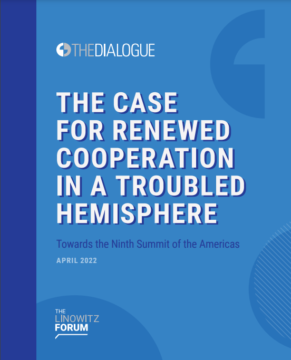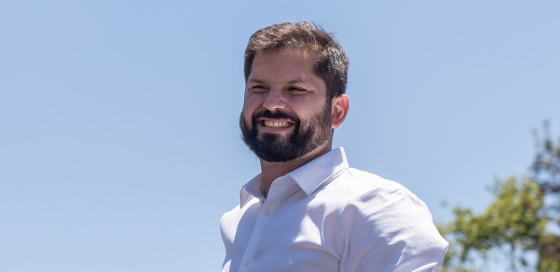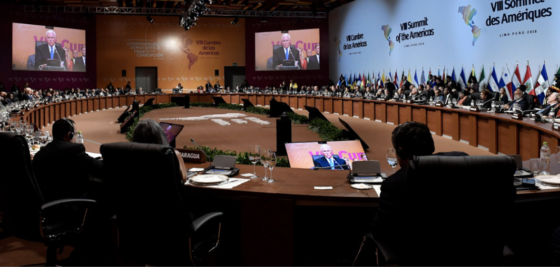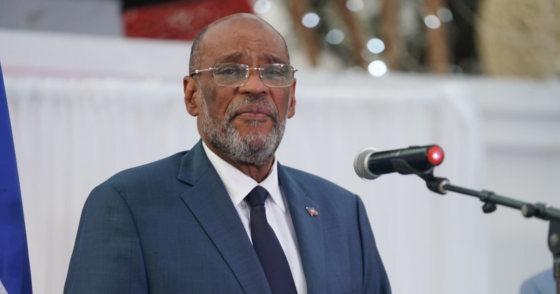
Can the Gangs That Are Terrorizing Haiti Be Stopped?
A Latin America Advisor Q&A featuring experts’ views on the surge in gang violence in Haiti and calls for the prime minister’s resignation.
A Latin America Advisor Q&A featuring experts’ views on the surge in gang violence in Haiti and calls for the prime minister’s resignation.
In El Salvador, the government of Nayib Bukele has posed a significant challenge to democracy in the region. His security policies, which have yielded positive results in reducing insecurity rates, have led to serious abuses and were made possible through prior measures that concentrated the power in the executive branch. These policies have also boosted the popularity of the Salvadoran president. This highlights the need to promote democratic and effective alternatives to address insecurity in the region.
Tamara Taraciuk Broner, director of the Peter D. Bell Rule of Law Program at the Inter-American Dialogue, spoke with Channel 4 in the United Kingdom on President Nayib Bukele’s state of emergency and its impact on rights.
Dr. Rebecca Bill Chavez, president and CEO of the Inter-American Dialogue and Antonia Urrejola, former foreign minister of Chile came together for an exchange titled, “Bolstering Democratic Governance Through Foreign Policy.”
Tamara Taraciuk Broner, Director of the Peter D. Bell Rule of Law Program at the Inter-American Dialogue, spoke with the Washington Post about the impact of President Nayib Bukele’s security strategy on democracy and the region.
Tamara Taraciuk Broner, director of the Peter D. Bell Rule of Law Program of the Inter-American Dialogue provided her analysis on the situation in Cuba. The conversation covers analysis on the latest developments in Cuba. What is happening with the protests and what elements should be observed? How does the picture look from the outside? What could be coming and what can be done?
A Latin America Advisor Q&A on the challenges facing Peru’s new president, Dina Boluarte, following the ouster of her predecessor, Pedro Castillo.
A Latin America Advisor Q&A featuring viewpoints on the results of the Colombian presidential election.
A Latin America Advisor Q&A featuring experts’ viewpoints on the upcoming Summit of the Americas in Los Angeles.
This report outlines the consequences of the Nicaraguan government’s impunity and offers a series of recommendations for international engagement that could lead to workable solutions.
Santiago Canton and Benjamin Gedan offered recommendations for how to increase transparency and combat corruption in Latin America in an article for the Georgetown Journal for International Affairs
Testimony by Program Director Margaret Myers on China’s Role in Latin America and the Caribbean to Senate Foreign Relations Committee.
Across the Americas, political leadership committed to greater collaboration to tackle health, social, economic, and political challenges has been sorely lacking. The Dialogue is pleased to present the 2022 Linowitz report “The Case for Renewed Cooperation in a Troubled Hemisphere,” which provides an analysis of the interrelated challenges facing the Western Hemisphere today and policy proposals to enhance collaboration across the hemisphere, all with an eye towards the Ninth Summit of the Americas.
A Latin America Advisor Q&A featuring viewpoints on Chile’s new progressive president, Gabriel Boric.
A Latin America Advisor Q&A featuring experts’ viewpoints on what can be expected from the June 2022 Summit of the Americas.
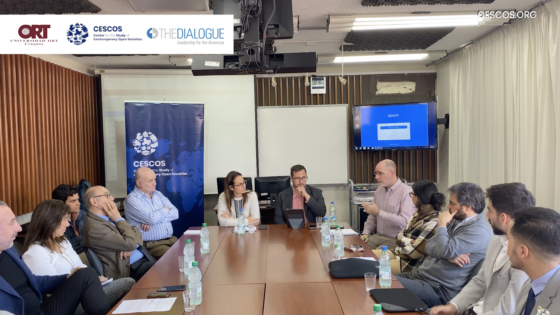 Video
Video
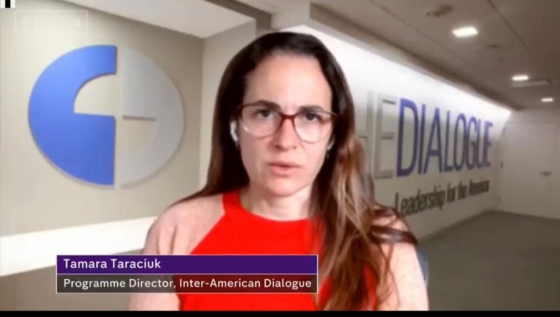 Video
Video
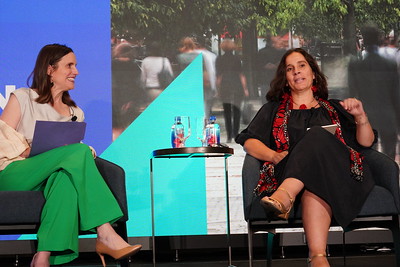
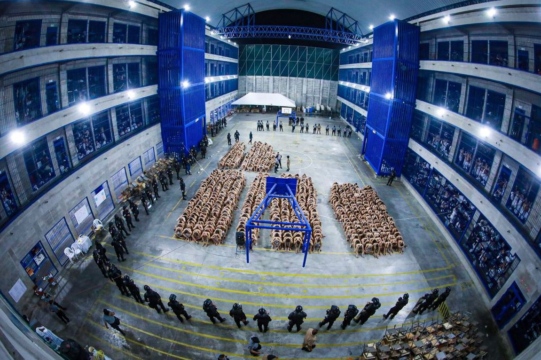
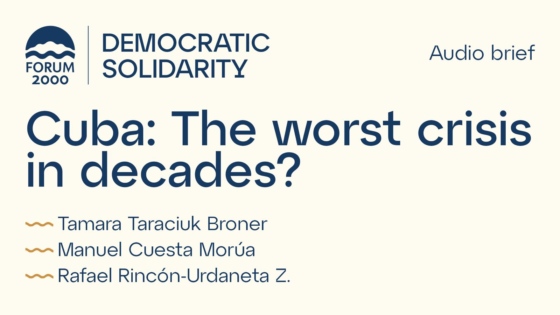 Video
Video
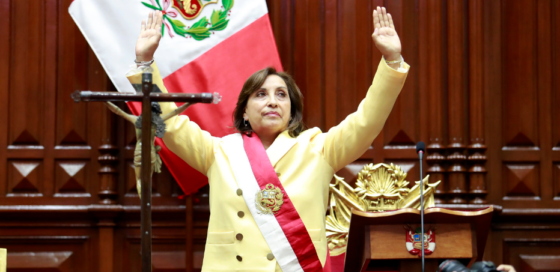
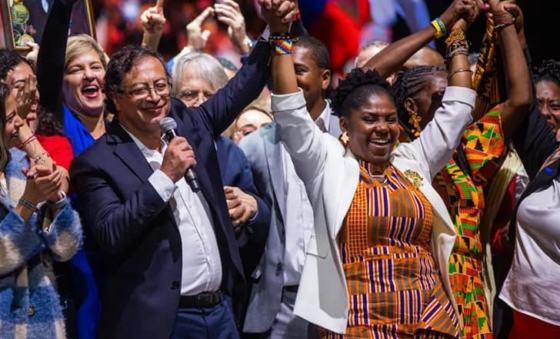
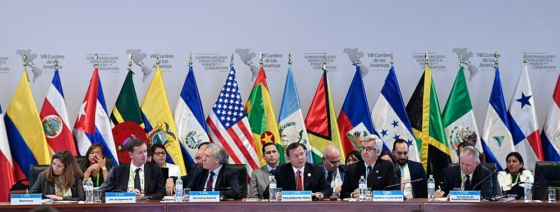
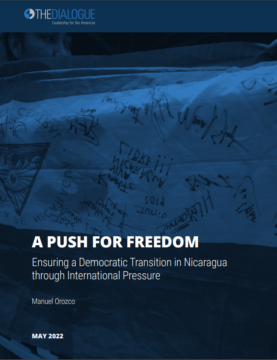
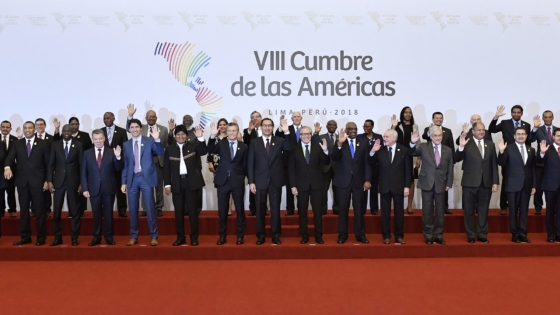
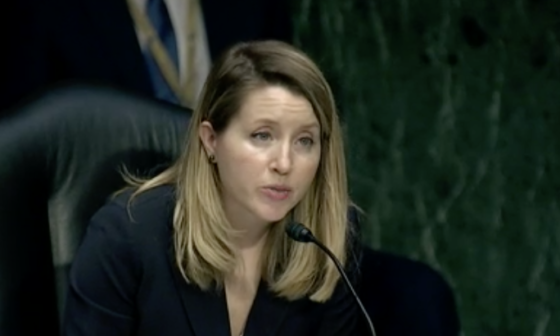 Video
Video
